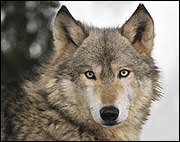The wisdom of the wild
I don't mean misbehavior, but real wildness, elemental wildness, animal wildness.
There is wisdom in wildness.
We are not wild, whatever pretensions we may have. Human language and society will always be imprinted upon us; we cannot escape them. We can, though, learn from the wildness of others. We can learn balance—in the wild, nature out of balance is nature dying. We can learn stewardship—like the wolf that culls the herd, or the raven who tends her nest. We can learn to listen to our senses—smell, taste, sound, touch, sight, and the indefinable instinct that we have almost, but never quite, forgotten.
There is wisdom in wildness, and though we are not wild, there will always remain wildness within us. We touch it when we are at peace with nature, when our senses are heightened, when we become one with our surroundings, whatever they be. We taste it when we are in love. And when we have given ourselves to the long and difficult work of tuning our minds, our homes, and our communities to the needs of the greater Earth, then we will have begun to live the wisdom of the wild.
Reprinted with permission from The Song and the Sigh (Thirty-six String Music, 2010), © Dan Schatz. See sidebar for links to related resources.
Comments powered by Disqus







